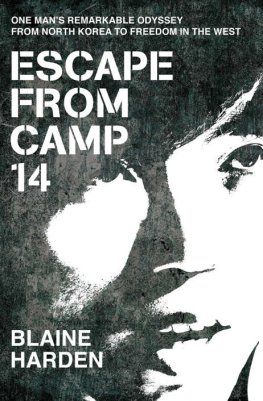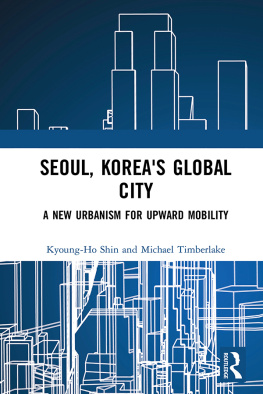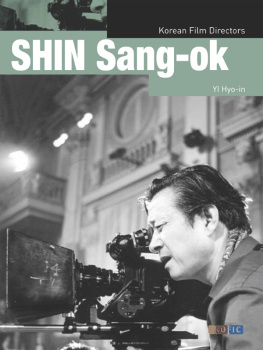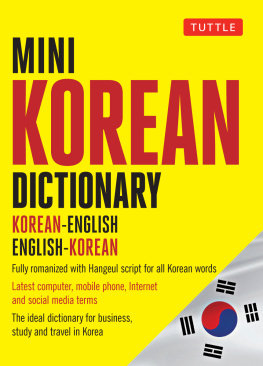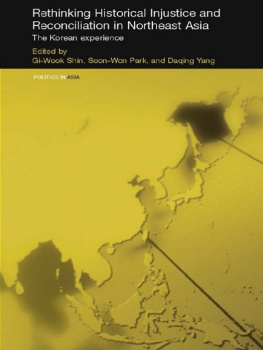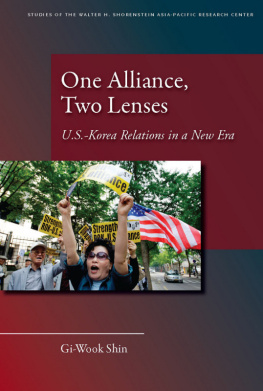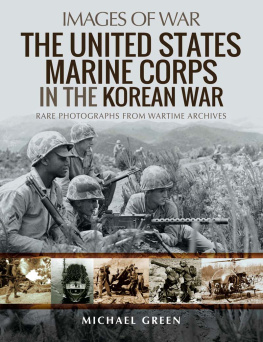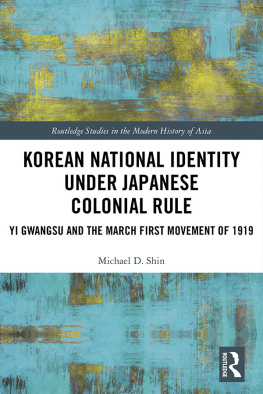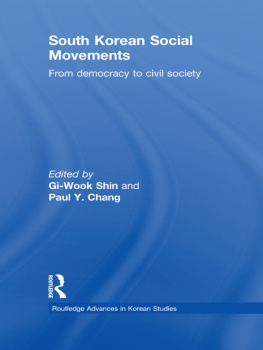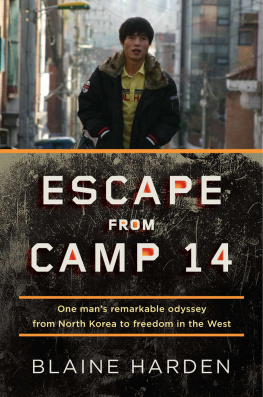University of Nevada Press, Reno, Nevada 89557 USA
Copyright 2001 by University of Nevada Press
All rights reserved
Manufactured in the United States of America
Design by Carrie House
Map by Cameron Sutherland
Library of Congress Cataloging-in Publication Data
Shin, Hyung Kyu, 1933
Remembering Korea 1950 : a boy soldiers story / Hyung Kyu Shin.
p. cm.
Original title unknown.
ISBN-10: 0-87417-482-1 (pbk. : alk. paper)
ISBN-13: 978-0-87417-482-3 (pbk. : alk. paper)
1. Korean War, 19501953 Personal narratives, Korean. 2. SoldiersKorea (South)Biography. 3. Shin, Hyung Kyu, 1933 I. Title
DS921.6 .S543 2001
951.904'2'092dc21 00-012731
23 22 21 20 19 18 17 16 15 14 13
5 4 3 2
Frontispiece: H. K. Shin, ca. 1950. Courtesy H. K. Shin.
ISBN-13: 978-0-87417-525-7 (ebook)
PREFACE
It was long ago in Korea, but I remember many images from 1950 better than any others of my boyhood, as if they happened yesterday. As I grow older, I remember the events of a half-century past more vividly than scenes I have experienced only a few hours before. I still dream about the war in Korea. In my dreams I am somewhere in North Korea, standing on a dirt road between mountains rising steeply from the roadside, or I am in a convoy of military vehicles withdrawing from Pyongyang, the capital city of North Korea. Sometimes I am shot at by North Korean soldiers or Communist Chinese soldiers positioned on mountain ridges, but the bullets miraculously never hit me. Sometimes I am trying to grab my rifle from my shoulder, but it always slips away as though my hand were covered with ice or grease. Or I fall to the ground, as if hit by a bullet or piece of flying shrapnel, but I am still able to crawl behind a dirt mound. There are no officers leading us. In my dreams there are only a few young boys in uniform trying to cover each other. It is usually snowing, but I dont feel cold, although someone says it is going to be a bitterly cold Siberian-type winter. The dreams might end with my trying to pull a wounded buddy and escape from a mountain road littered with dead soldiers. I know they are dead, but strangely I talk to them, crying that Im not going to make it out of the killing field. Some faces in the dream are very familiar, as though I used to know these people from somewhere. But many others are the faces of those whom I have never seen before. They all look very, very young.
In mid-December 1950 I was a corporal of the Republic of Korea (ROK) Army assigned to B Company of a forward military police battalion, stationed near the city of Kaesng, just south of the 38th Parallel. The Korean War, then in its sixth month, had been transformed from a conflict into an all-out, savage war after the Chinese Communist Army crossed the Yalu River. The invasion by North Korean Communist soldiers had turned our difficult lives under the newly formed South Korean government into a nightmare. Life in Korea 1950, especially during the month of December, was hard for everyone. It was a dangerous place to be in 1950. Someone said the situation represented a United Nations (UN) police action. But it was not a police action. It was a full-blown, fierce war. When the Chinese Communist soldiers attacked en masse in early November, we were already deep into North Korean territory after retaking Seoul. Until that time, we thought we would win the war soon. My company had been stationed at many different places at the front. But we withdrew from Pyongyang in early December, as Chinese forces had reached the outskirts of the city.
During the withdrawal, we were assigned to secure the military supply route (MSR) between Pyongyang and the south for retreating South Korean and Allied forces of the United Nations. The retreat route from Pyongyang was a battle-damaged two-lane road, covered with a thick layer of packed snow and clogged with military vehicles. No vehicles could travel faster than ten miles per hour. Some vehicles were moving north with regrouped soldiers and heavy armaments. Their main mission was to slow down the enemy advance so that the main forces could retreat to some strategic point and set up a new defensive line. Along the withdrawal route, the weather was vicious and the mountain terrain overwhelmed us. Our withdrawal was far from orderly. Perhaps a more fitting description would be chaotic. Enemy mortar shells and small-arms fire constantly interrupted us, often leading to a complete loss of leadership among the Allied forces in this unknown terrain. Many times each of us was forced to rely on himself alone. The road was often cut and the advancing Chinese Communist units attacked our forces. Although the Chinese soldiers were not well trained or equipped, their ability to launch suicidal human-wave charges forced the Allies to withdraw. The Chinese soldiers practiced a warfare that to us seemed based on sheer numbers, less on strategy, and indeed almost fanatical. Bodies of dead Chinese soldiers and destroyed Chinese military equipment were everywhere, but despite the heavy casualties they never ceased coming at us.
I thought I would never make it out of there, but I was determined to carry out my orders to maintain the checkpoint for orderly withdrawal. If one looked only at those men in their disarray and the endless convoy of retreating Allied forces, it would seem that the war was lost. But I convinced myself that our morale was not completely dead. In fact, I had noticed some men, even in withdrawal, willing to stand and fight. Although we were retreating, I had to believe that we would be back at this same place. We had experienced so much so quickly. Unlike during the summer, by December 1950 we were motivated and battle-tested fighting soldiers. And we would need motivation, for now the most savage period of the war had begun, in a land that had been liberated just a few years earlier from harsh Japanese occupation.
Our company had only just arrived in Kaesng, and the battle was raging not far from the city. The enemy seemed to catch up with us as fast as we could withdraw. It was a cold December night. The wind never stopped blowing, often with blizzardlike fury, signaling the approach of a brutal winter that would bring misery to the men at the front. Until my next duty at an outpost along the MSR, I had a few hours to myself, providing me with a rare opportunity to reflect on the many things that had happened over the past several months, and especially over the past two weeks since our withdrawal from Pyongyang. I hid behind a pile of ammunition cases in the supply room and opened my footlocker, where I kept my diary, written on any scrap of paper I could find since completing basic training. There were no entries on some dates, when we had been either moving from one outpost to another or carrying out a mission on the battlefield as the enemy closed in. Keeping a diary was forbidden in the military, but I wrote in my diary whenever possible and hid it in my footlocker. As retreating tanks roared by on the nearby MSR and the rumbles of artillery shells exploding at a distance interrupted my thoughts, I read it and recollected sad and bitter memories of the people I had met on the battlefield and the places I had been since the war had broken out. There was nothing pleasant in the whole diary of more than two hundred pages. But the reading brought back many indelible memoriessome tenderof a brutal war. If I ever returned home alive, I would tell my mother all about the events in my life since I had left her. I thought then that perhaps I could even write a book someday about the events that I had hidden in my diary. Maybe others might find it interesting to learn how a small boy soldier survived the killing fields of North Korea and retained a vestige of his humanity. If I ever returned home alive.


